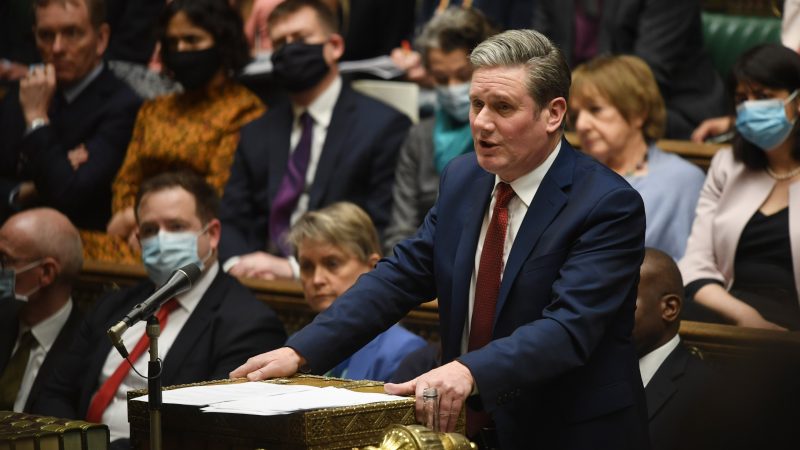
In a week where the government published the potentially illegal Northern Ireland protocol bill and faced the embarrassment of the first flight scheduled under its Rwanda scheme being cancelled, it was surprising to see Keir Starmer focus on the economy during today’s Prime Minister’s Questions. He demanded that Boris Johnson explain why Britain is set for lower growth than every other major economy apart from Russia. The Prime Minister trotted out his usual lines about the strength of the economy and the high employment rate, chucking in a few jibes about Labour’s economic record for good measure.
Johnson tried to turn the discussion round to the rail strikes, calling on Starmer to end his silence and oppose “Labour’s rail strikes”. The government is trying to dodge its own responsibilities in relation to the strikes by associating them closely with Labour – ignoring the fact that the railway workers’ union RMT disaffiliated from the party in 2004. Starmer responded strongly to this, pointing an accusing finger at Johnson and telling MPs: “He’s in government, he could do something to stop the strikes, but he hasn’t lifted a finger.” Clarifying his own stance, Starmer added: “I don’t want the strikes to go ahead, but he does.” He argued that the Prime Minister “wants the country to grind to a halt so he can feed off the division”.
Starmer’s other key lines – about Johnson trying to perform “Jedi mind tricks” on the country with his claims that the economy is “booming” and the Prime Minister “game-playing so much, he thinks he’s on Love Island – at times felt a little over-rehearsed. Although you might expect those references to be more widely understood and appreciated than Johnson’s use of the phrase “ignoratio elenchi” (Latin for ‘missing the point’) to dismiss one of Starmer’s questions.
And that seemed to be the purpose of Starmer’s questioning today: appealing to the British people. Because as much as the government’s Rwanda scheme is a moral outrage and the Northern Ireland protocol bill has made the UK a laughing stock on the world stage, for many voters, these two policies feel very distant from their everyday lives. By contrast, the cost-of-living crisis – precipitated in part, Labour continues to stress, by Tory economic policy – is being felt across the country. “He’s not just denying how bad things are, he’s actively making things worse,” Starmer said of Johnson. “Week after week, he stands there and spouts the same nonsense,” he added. “Millions of working people know the reality”.
From that perspective, Starmer’s decision to focus on the economy makes some sense. But it does feel strange that the only mention of the Rwanda scheme was Johnson accusing Labour of being “on the side of people traffickers” and that Northern Ireland received no attention at all. These issues may feel distant to people, but they are revealing of the true nature of the current Tory Party – and yet more justification to get them out of government.




More from LabourList
‘Labour is being badly misled on housing’
Reeves bets on patience over populism
‘Energy efficiency changes must work for older private renters’